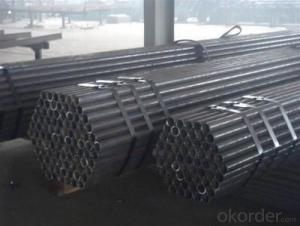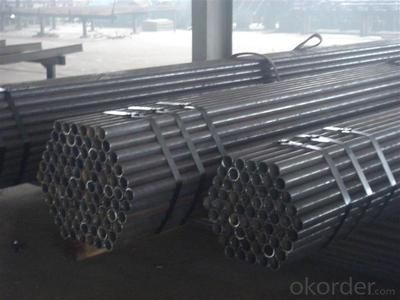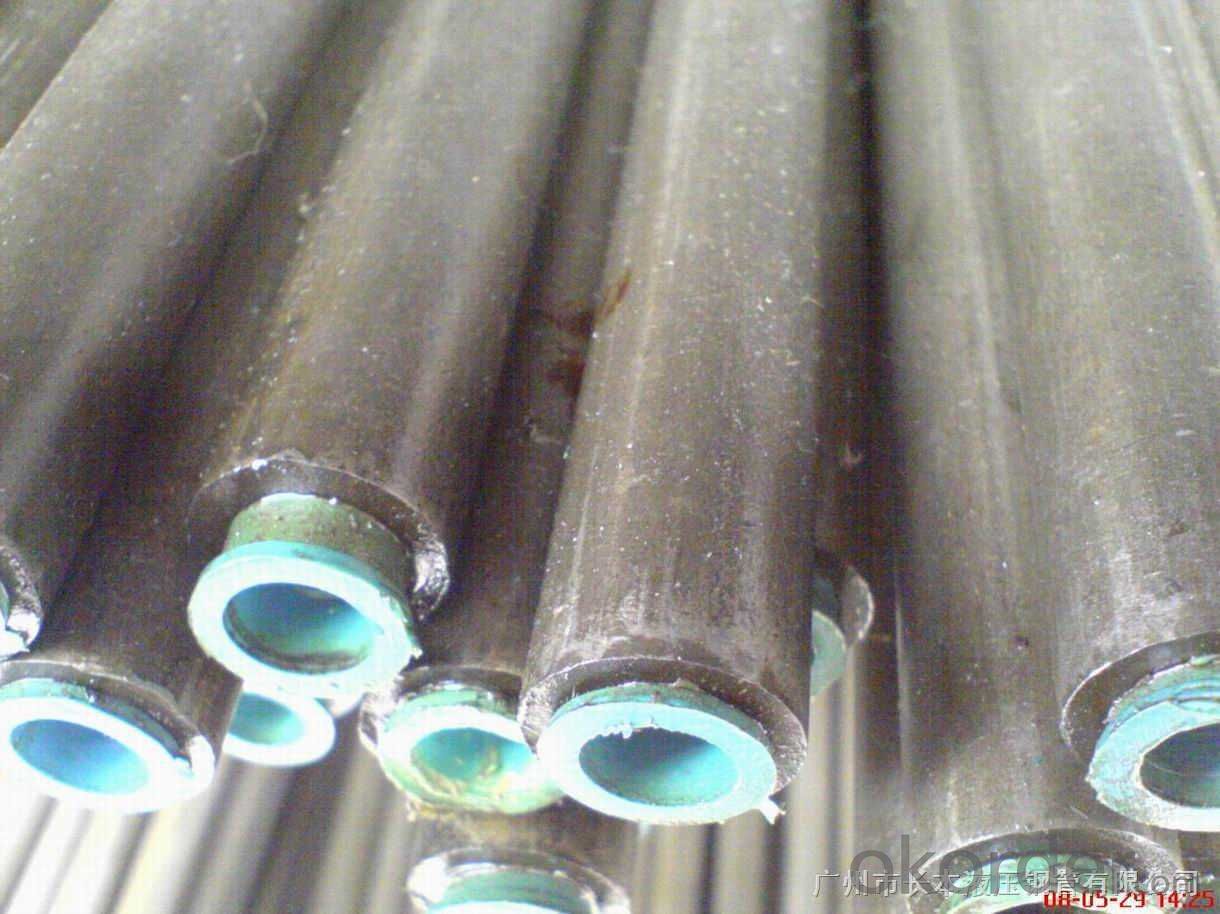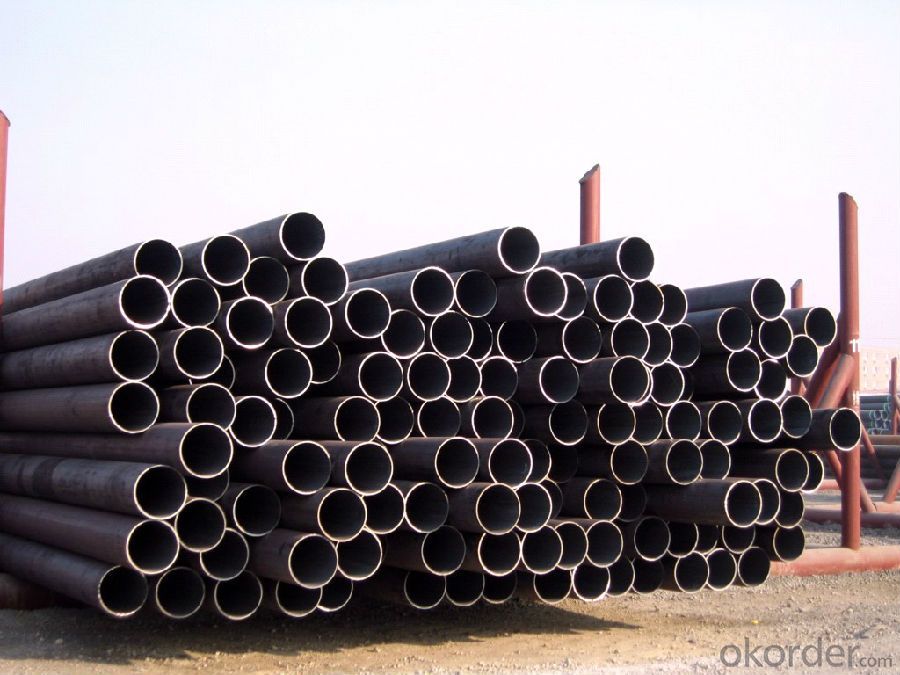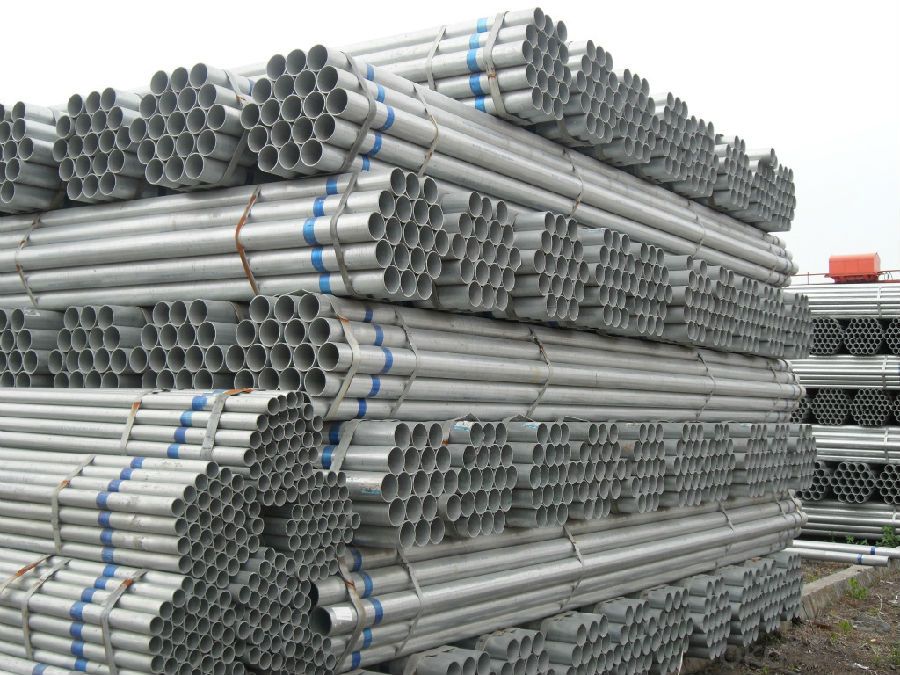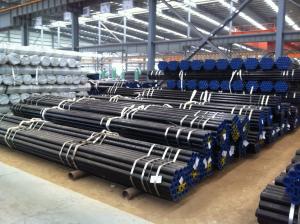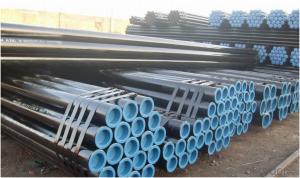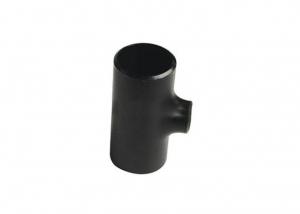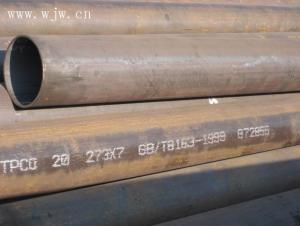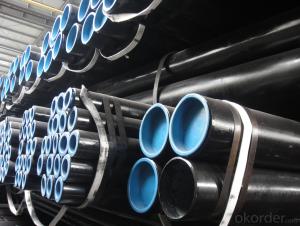Carbon Steel Seamless Pipe Grade 42.2x3.56
- Loading Port:
- Tianjin
- Payment Terms:
- TT or LC
- Min Order Qty:
- 25 m.t.
- Supply Capability:
- 9000 m.t./month
OKorder Service Pledge
OKorder Financial Service
You Might Also Like
1、Structure of Seamless Pipe ASTM A106/53:
Seamless pipe is formed by drawing a solid billet over a piercing rod to create the hollow shell. As the manufacturing process does not include any welding, seamless pipes are perceived to be stronger and more reliable. Historically seamless pipe was regarded as withstanding pressure better than other types, and was often more easily available than welded pipe.
Carbon Steel Seamless Pipe
OD: 42.2mm Thickness: 3.56mm Weight: 12.21t
Packing: below 12'' packed in bundles, wrapped with PVC. with steel stripes and two nylon loading belts per bundle.
Certificates: ISO9001-2000, ISO14000, ISO18000, API 5L certificate.
Third party inspection: welcome you to send a third party inspecting company (BV, SGS etc) to check the quality of our final products.
Pictures: our producing flow chart, our factory, production line, inspecting equipments, our products are listed below for your reference.
Surface treatment:
Widely used in the mechanical treatment field, petrochemical industry, transport and construction field
Ordinary structural purposes and mechanic structural purposes, for example in construction field, fulcrum bearing etc.
Application
carbon seamless steel pipes are widely used in gas, water and oil, transpotation;constructions;Bridge,highway,windows of model steel door;building materials;fences;heating facilities Fluid Pipe;conduit pipe,scaffolding pipe.etc.
Payment Terms: L/C D/A D/P T/T
Packing and shipment
Packaged in bundles,as per customers' requirements, it can also bepackagesd as beveled ends, typed marking, black painting, plastic caps protection,woven bags packing
For 20" container the max length is 5.8m; For 40" container the max length is 12m. other options are available based on customer requests. Please discuss when placing orders
2、Main Features of the Seamless Pipe ASTM A106/53:
• High manufacturing accuracy
• High strength
• Small inertia resistance
• Strong heat dissipation ability
• Good visual effect
• Reasonable price
3、Seamless Pipe ASTM A106/53 Specification:
Standard | GB, DIN, ASTM ASTM A106-2006, ASTM A53-2007 |
Grade | 10#-45#, 16Mn 10#, 20#, 45#, 16Mn |
Thickness | 8 - 33 mm |
Section Shape | Round |
Outer Diameter | 133 - 219 mm |
Place of Origin | Shandong, China (Mainland) |
Secondary Or Not | Non-secondary |
Application | Hydraulic Pipe |
Technique | Cold Drawn |
Certification | API |
Surface Treatment | factory state or painted black |
Special Pipe | API Pipe |
Alloy Or Not | Non-alloy |
Length | 5-12M |
Outer Diameter | 21.3-610mm |
Grade | 20#, 45#, Q345, API J55, API K55, API L80, API N80, API P110, A53B |
Standard | ASME, ASTM |
.
4、Packaging & Delivery
Packaging Details: | seaworthy package,bundles wrapped with strong steel strip |
Delivery Detail: | 15-30days after received 30%TT |
5、FAQ of Seamless Pipe ASTM A106/53:
①How is the quality of your products?
Our products are manufactured strictly according to national and internaional standard, and we take a test
on every pipe before delivered out. If you want see our quality certifications and all kinds of testing report, please just ask us for it.
Guaranteed: If products’ quality don’t accord to discription as we give or the promise before you place order, we promise 100% refund.
②How about price?
Yes, we are factory and be able to give you lowest price below market one, and we have a policy that “ for saving time and absolutely honest business attitude, we quote as lowest as possible for any customer, and discount can be given according to quantity”,if you like bargain and factory price is not low enough as you think, just don’t waste your time.Please trust the quotation we would give you, it is professional one.
③Why should you chose us?
Chose happens because of quality, then price, We can give you both.Additionally, we can also offer professional products inquiry, products knowledge train(for agents), smooth goods delivery, exellent customer solution proposals.Our service formula: good quality+good price+good service=customer’s trust
SGS test is available, customer inspection before shipping is welcome, third party inspection is no problem.
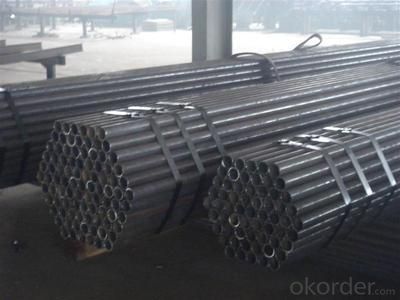
- Q: How are steel pipes used in the automotive exhaust system?
- Steel pipes are used in the automotive exhaust system to channel the exhaust gases from the engine to the rear of the vehicle. These pipes are durable and resistant to high temperatures and corrosive elements, making them ideal for withstanding the intense heat and harsh conditions of the exhaust system. Additionally, steel pipes are often used to reduce noise and vibrations generated by the engine, improving the overall performance and comfort of the vehicle.
- Q: Can steel pipes be used for the construction of transmission towers?
- Yes, steel pipes can be used for the construction of transmission towers. Steel pipes are commonly used in the construction industry due to their strength, durability, and ability to withstand various weather conditions. They provide a reliable and cost-effective solution for supporting the weight and load of transmission towers, making them suitable for this purpose.
- Q: How are steel pipes used in the telecommunications infrastructure?
- Steel pipes are commonly used in telecommunications infrastructure for the installation of underground cables. These pipes provide protection and support to the cables, ensuring their longevity and efficient functioning. Additionally, steel pipes are used for the construction of telecommunication towers, providing a sturdy framework for antennas and other equipment.
- Q: What is the difference between steel pipe and HDPE pipe?
- Steel pipe and HDPE pipe are both types of pipes used for various purposes, but they differ in their composition and characteristics. Steel pipe is made of a combination of iron and carbon, making it strong and durable. It is commonly used for transporting fluids and gases in industries such as oil and gas, construction, and water supply. On the other hand, HDPE (high-density polyethylene) pipe is made of a plastic polymer, which offers excellent flexibility and corrosion resistance. HDPE pipe is commonly used for applications such as drainage, irrigation, and sewage systems. Overall, the main difference between steel pipe and HDPE pipe lies in their material composition and the specific applications they are best suited for.
- Q: What is the weight of hot galvanized steel tubes? DN150 4mm wall thickness
- GB/T3091-2008: DN150 welded steel pipe, wall thickness of 6mm, the theory of the weight of welded steel pipe 24.02kg/m, galvanized steel pipe should be multiplied by the weight coefficient after galvanizing, C, DN150, wall thickness of 6mm, C=1.02, DN150, theoretical weight and wall thickness of 6mm galvanized steel 1.02*24.02= 24.5kg/m.
- Q: What are the different methods of pipe support for steel pipes?
- Various methods exist for supporting steel pipes, each aimed at guaranteeing pipe stability, alignment, and protection. Some frequently employed techniques are as follows: 1. Pipe Hangers: These devices suspend or bear the weight of the pipe from above. Typically crafted from metal, they can be adjustable or fixed, allowing for easy installation and maintenance. Depending on the application, pipe hangers can take the form of clevis hangers, beam clamps, or pipe rollers. 2. Pipe Shoes: These supports attach directly to the underside of the pipe, providing a stable resting surface. Usually made from steel or other durable materials, pipe shoes prevent pipe movement, absorb vibrations, and distribute weight evenly. They find common use in applications involving high temperatures or requiring thermal expansion. 3. Pipe Clamps: These devices fasten pipes together or secure them to structures. Constructed primarily of metal, pipe clamps come in various sizes and designs to accommodate different pipe diameters and configurations. They provide support and prevent sagging or movement, particularly in areas with directional or elevation changes. 4. Pipe Racks: These structures are custom-designed to support multiple pipes in an organized and secure manner. Commonly found in industrial settings like refineries or power plants, pipe racks store or support large quantities of pipes. Typically made of steel, they can be tailored to suit different pipe sizes and layouts. 5. Pipe Guides: These devices facilitate pipe movement control, especially during thermal expansion or contraction. Fixed to the structure, pipe guides offer a sliding surface that accommodates longitudinal pipe movement. They are frequently utilized in applications involving temperature variations, such as steam or hot water systems. These represent just a few examples of the numerous methods available for supporting steel pipes. The choice of support method depends on factors such as pipe size, weight, temperature, and specific application requirements. Selecting the appropriate support method is crucial to ensure pipe longevity and integrity while preventing issues like sagging, misalignment, or failure.
- Q: What is the maximum pressure that steel pipes can handle?
- The maximum pressure that steel pipes can handle depends on various factors such as the grade of steel, pipe thickness, and diameter. However, in general, steel pipes can handle pressures ranging from a few hundred psi (pounds per square inch) to several thousand psi.
- Q: What is the buckling type thin-wall steel pipe? What is a tight set of thin-walled steel tubes? What's the difference between the two?
- The wire pipe thread (box, cup lock fastening points) (JDG) and buckling type (KBG) two. Products are made of high-quality steel pipe, through precise stamping molding, supply pipe and terminal box connection. The nut is hexagonal, and the convex point is punched at the six corner so as to form a good multi-point contact after being connected with the junction box.
- Q: What's the difference between hot dip galvanizing and cold galvanizing? Which kind of galvanizing method is good?
- Cold galvanizing refers to the zinc plating, the coating is thinner, corrosion resistance is slightly worse, variable color. Environmental pollution.Hot dip galvanized by molten zinc ingots, the coating thickness can be adjusted, good corrosion resistance, and subsequent passivation, can be used for outdoor rust, long service life, some up to 20 years.
- Q: How seamless steel tube is formed?
- Seamless steel tubes are formed by cold drawing and hot rolling.
Send your message to us
Carbon Steel Seamless Pipe Grade 42.2x3.56
- Loading Port:
- Tianjin
- Payment Terms:
- TT or LC
- Min Order Qty:
- 25 m.t.
- Supply Capability:
- 9000 m.t./month
OKorder Service Pledge
OKorder Financial Service
Similar products
Hot products
Hot Searches
Related keywords
